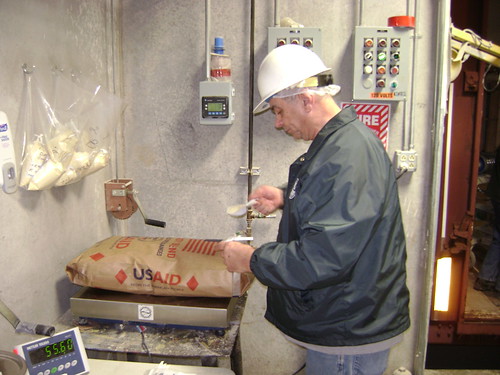USAID’s Food for Peace program has provided U.S. grown food and nourishment to billions of hungry people in 150 countries during the past 50+ years. The Grain Inspection, Packers and Stockyards Administration (GIPSA) plays an important supporting role in ensuring that the grain and products provided are of high quality and meet nutritional specifications.
In collaboration with the Farm Service Agency, GIPSA personnel sample and test food aid commodities that are distributed by USAID. The procedures are straightforward--licensed samplers pull off a predetermined number of bags at random off a production line. The bags are then weighed to assure that they contain the proper amount and the sampler cuts open the bags and uses a sterile probe to obtain samples of the food product. Samples from the different bags are combined and sent to GIPSA’s commodity testing laboratory in Kansas City where they are tested for certain specifications. For grain, like corn or wheat, this can mean making sure it is not damaged or infested. For milled and processed products, like corn-soy blend that is often made into a highly nutritious porridge, the tests also confirm that they have the proper amounts of protein, vitamins and nutrients.
After the laboratory confirms the food meets the specifications, GIPSA certifies the results and gives the green light for the food aid to be exported to people in need around the world with confidence that it is a healthy product.

